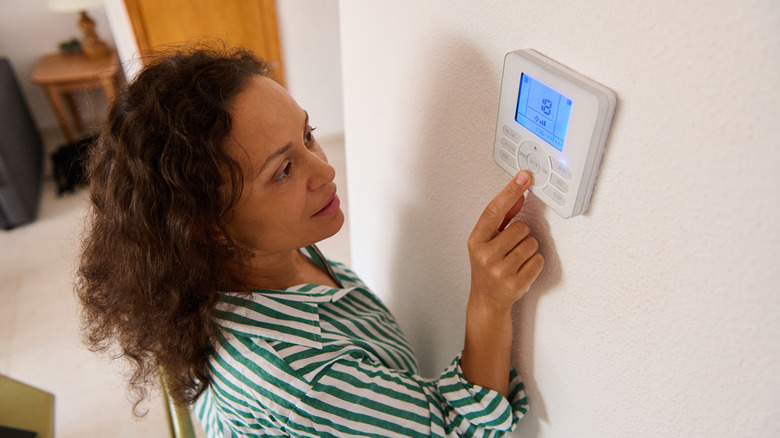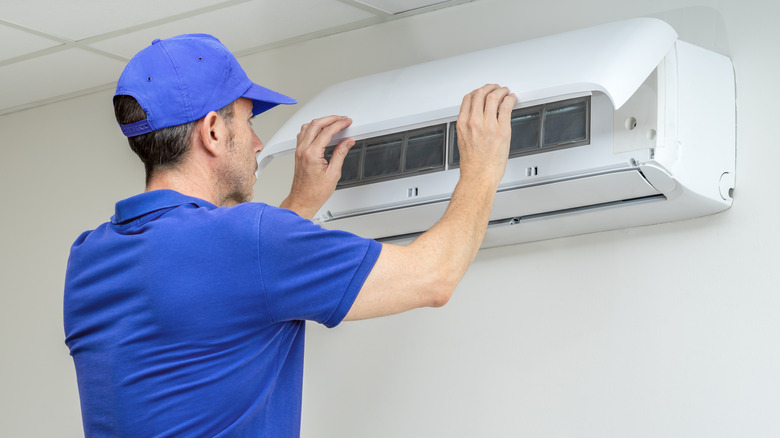The Best Time Of Day To Turn On The Heat To Save Money
Cold weather is upon us, and it's no fun to wake up in the morning to a freezing home. It's also no fun to have a high heating bill. Home heating can be the biggest residential expense over the winter. On average, about 43% of energy expenditures go toward home heating. Water heating is a distant second at 19%. It's worth paying attention to how and when you heat your home, especially if you use a fuel (oil, propane, natural gas). An easy way to reduce your energy costs at home is to adjust your thermostat on a daily basis. This can save as much as 10% on your heating bills, according to the U.S. Department of Energy. To both save money and wake up to a warm home, turn down your heat 30 minutes before going to bed (that's where blankets will come in handy), then program it to turn back up 30 minutes before you get up in the morning.
A programmable thermostat allows you to set the temperature (and override the settings if you want) in advance. Set your thermostat to 68 to 70 degrees Fahrenheit during daytime hours, then lower it back by 7 to 10 degrees Fahrenheit for when you're sleeping. If you work away from home, set your thermostat to lower the temperature 30 minutes before you leave and to raise it again 30 minutes before you get home.
Should you turn your heat on and off if you heat your home with electricity?
The cost of the furnace kicking on and off is one of the drawbacks of a fuel-heated home, including gas heating. But some forms of electric heating are no better. Many people in warmer climates heat their homes with resistance heating, such as electric baseboards, wall heaters, electric furnaces, or plug-in space heaters. Resistance heating is often the most expensive way to heat your home on a per-unit basis. It may not be worth investing in a furnace if you only use your heater a few times a year, though. If this is how you heat your home, follow the directions above and adjust your thermostat as you would when burning fuel.
These days, electric heat pumps are the most installed new home heating units. While 46% of U.S. homes are heated with natural gas, compared to 43% using electricity, new heat pump installations outnumber natural gas installations by 21%. If you're shopping for a new heating system for your home, consider that one of the virtues of heat pumps (besides doubling as air conditioners) is that they are "set it and forget it." According to the U.S. Department of Energy, heat pumps are most efficient when they are not turned on and off, so there is no need to adjust and readjust the temperature. Compared to electric resistance heating systems, installing an air-source heat pump can save you around $459 per year. With a heat pump, whether ducted or ductless, you'll never have to worry about when it's best to turn on the heat to save money.

